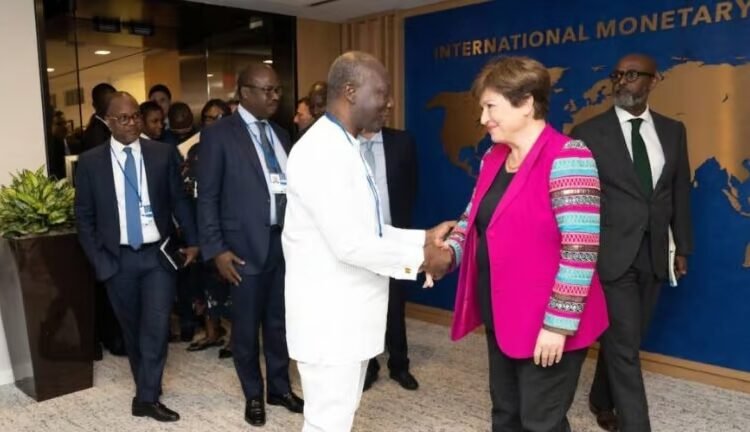The Ministry of Finance and Bank of Ghana (BoG), in collaboration with the International Monetary Fund (IMF), are finalizing a comprehensive strategy aimed at revitalizing Ghana’s financial sector.
The strategy, set to be unveiled by the end of June, is a crucial component of the proposed structural reforms under the $3 billion Extended Credit Facility (ECF) provided by the IMF.
Objective of the event, according to both body is to strengthen the financial sector, restore market confidence, and encourage increased lending to the private sector.
The IMF emphasized the importance of timely action, urging fiscal and monetary authorities to provide capital support to qualifying institutions and implement measures promptly to enhance the financial sector’s resilience.
As part of the proposed reforms, all 23 commercial banks in the Ghana will be required to submit reliable plans to replenish their capital buffers within specified timelines outlined in the financial sector strategy. The plans will undergo evaluation by the central bank and must be finalized for approval by the Bank of Ghana (BoG) before the end of September 2023.
READ ALSO: IMF hails Kenya’s economic recovery program
Special deposit-taking institutions (SDIs), non-bank financial institutions (NBFIs), and other regulated financial entities will also be expected to submit time-bound plans for recapitalization. Regulatory bodies will closely monitor the progress of these institutions to ensure compliance.
The IMF’s proposed reforms have garnered mixed reactions from analysts, with supporters highlighting the potential for enhanced investor confidence and economic growth, while critics express concerns about the burden on financial institutions and the overall economy.
The implementation of these reforms, including the GH¢15 billion Financial Stability Fund, is eagerly anticipated as stakeholders look to shape the future of Ghana’s financial landscape.






























































